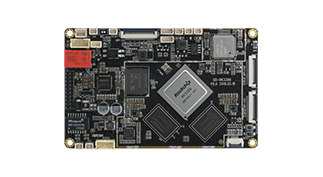Customized Android firmware¶
Preface¶
To customize Android firmware, there are two methods:
Modify source code, then compile and package to new firmware.
Patch based on existing firmware.
The former can customize Android on any level freely, but require compiling environment with high performance, and personal knowledgeable skill in Linux kernel and Android. Please see the detail in Build_android.
We introduce the latter one here. It is divided in three stages: extract, customize and package. We use Linux as the host OS, and utilities which are all open source.
Image format¶
Our new update image, release_update.img here, contains bootloader loader.img and the actual firmware data update.img. That is, release_undate.img is a wrapper of loader.img and update.img.
release_update.img
|- loader.img
`- update.img
update.img is a composite file, which contains multiple files described by package-file. A typical package-file is:
# NAME Relative path
#
# HWDEF HWDEF
package-file package-file
bootloader Image/MiniLoaderAll.bin
parameter Image/parameter.txt
trust Image/trust.img
uboot Image/uboot.img
misc Image/misc.img
resource Image/resource.img
kernel Image/kernel.img
boot Image/boot.img
recovery Image/recovery.img
system Image/system.img
backup RESERVED
update-script update-script
recover-script recover-script
package-file
update.imgpackage description file,update.imgalso contains apackage-file.
Image/MiniLoaderAll.bin
Start the loader - bootloader.
Image/parameter.txt
Parameter file, can set the kernel boot parameters, there are important partition information.
Image/trust.img
trust.imgis the U-Boot as the secondary loader package.
Image/misc.img
Image of misc partition, used to control whether Android starts normally or enters Recovery Mode.
Image/kernel.img
Android kernel.
Image/resource.img
Resource image with kernel boot image and kernel Device Tree Blob.
Image/boot.img
The memory boot disk (initrd) of the Android kernel, the first root file system to be loaded after the kernel is started, contains important initialization actions that generally do not need to be changed.
Image/recovery.img
Android image,including Recovery Mode with kernel and root file system of Recovery Mode.
Image/system.img
Corresponds to the Android
/systempartition and is the following custom object.
Unpacking is extracting the update.img from release_update.img, then the extracted with package-file statement by multiple files.
Packaging is an inverse process to synthesize the multiple files listed in the package-file to update.img, add to the loader.img, and finally generate the release_update.img.
Prepare the Tools¶
git clone https://github.com/TeeFirefly/rk2918_tools.git
cd rk2918_tools
make
sudo cp afptool img_unpack img_maker mkkrnlimg /usr/local/bin
Extrace Firmware¶
Extract the
release_update.img
$ cd /path/to/your/firmware/dir
$ img_unpack Firefly-RK3399_20161027.img img
rom version: 6.0.1
build time: 2016-10-27 14:58:18
chip: 33333043
checking md5sum....OK
Extract the
update.img
$ cd img
$ afptool -unpack update.img update
Check file...OK
------- UNPACK -------
package-file 0x00000800 0x00000280
Image/MiniLoaderAll.bin 0x00001000 0x0003E94E
Image/parameter.txt 0x00040000 0x00000350
Image/trust.img 0x00040800 0x00400000
Image/uboot.img 0x00440800 0x00400000
Image/misc.img 0x00840800 0x0000C000
Image/resource.img 0x0084C800 0x0003FE00
Image/kernel.img 0x0088C800 0x00F5D00C
Image/boot.img 0x017EA000 0x0014AD24
Image/recovery.img 0x01935000 0x013C0000
Image/system.img 0x02CF5000 0x2622A000
RESERVED 0x00000000 0x00000000
UnPack OK!
View the file tree under the update directory
$ cd update/
$ tree
.
├── Image
│ ├── boot.img
│ ├── kernel.img
│ ├── MiniLoaderAll.bin
│ ├── misc.img
│ ├── parameter.txt
│ ├── recovery.img
│ ├── resource.img
│ ├── system.img
│ ├── trust.img
│ ├── uboot.img
├── package-file
└── RESERVED
1 directory, 12 files
Now that the firmware has been unpacked successfully, let’s start customizing it.
Customize¶
Customize the system.img¶
system.img is an image file with ext4 filesystem format, which can be mounted into system to modify directly
sudo mkdir -p /mnt/system
sudo mount -o loop Image/system.img /mnt/system
cd /mnt/system
# Add or delete apks inside. Pay attention to the free space. You canno add too many apks.
# Edit complete. Unmount it.
cd /
sudo umount /mnt/system
Please note, the free space of system.img is nearly zero. If you want more, you have to expand it, and change partition settings in parameter file accordingly.
Here is an example of how the expand the image. Before expanding, run mount to make sure that system.img is not mounted (Unmount it if it is):
Add 128M disk space
dd if=/dev/zero bs=1M count=128 >> Image/system.img
# Update filesystem records
e2fsck -f Image/system.img
resize2fs Image/system.img
Packing¶
First, you need to check the size of system.img. Make sure it is matched with partition setting in parameter file. If not, modify the parameter file to adjust the partitions.
For example, you can find the CMDLINE line in parameter file parameter.txt, which has the string system:
0x00200000@0x000B0000(system)
The number before symbol @, is the size of the partition, in unit of 512 bytes (traditional disk sector size). Therefore this system partition has a size of:
$ echo $(( 0x00200000 * 512 / 1024 / 1024))M
1024M
As long as the size of system.img does not exceed 1024M, the parameter file does not need to be changed.
If size of system.img does not go beyond 1024M, there is no need to change parameter file.
If the partitions do not changed, you can flash the new system.img to the device for a test. Otherwise, you need to package a new firmware, flash it and test.
Here are the steps to package update.img:
Package update.img:
# The current directorys still update/, which has package-file. All files listed in package-file are available.
# Copy the parameter file, which is the default one used by afptool.
$ cp Image/parameter.txt parameter
$ afptool -pack . ../update_new.img
------ PACKAGE ------
Add file: ./package-file
Add file: ./Image/MiniLoaderAll.bin
Add file: ./Image/parameter.txt
Add file: ./Image/trust.img
Add file: ./Image/uboot.img
Add file: ./Image/misc.img
Add file: ./Image/resource.img
Add file: ./Image/kernel.img
Add file: ./Image/boot.img
Add file: ./Image/recovery.img
Add file: ./Image/system.img
Add file: ./RESERVED
Add CRC...
------ OK ------
Pack OK!
Package release_update.img:
$ img_maker -rk33 loader.img update_new.img release_update_new.img
generate image...
append md5sum...
success!
Congratulations, release_update_new.img is the final firmware image file ready to flash.
FAQS¶
Q1 : How to change firmware version?
A1 : In parameter file, find the following line and modify it. The version can only contain digital numbers, and the two dots can not be omitted.
FIRMWARE_VER: 7.1.1
